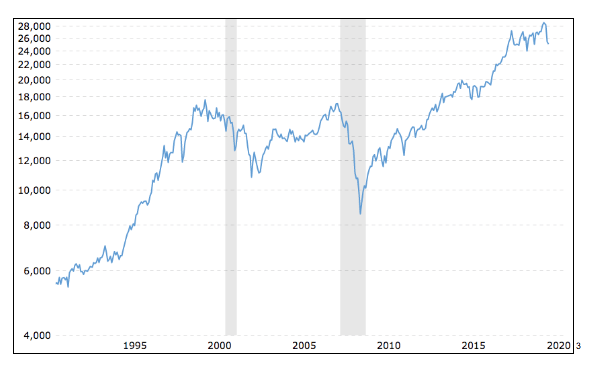By Jeff Gilbert
In 2021, surveys show that 31% of all small businesses or franchises in the U.S. are owned by women. (1) This number has increased by 4% since 2020, which is inspiring given the pandemic and economic turmoil the majority of business owners have faced over the last year.
Although most business owners work extremely hard and overcome significant obstacles to make their businesses succeed, women face unique challenges in the business world that most men simply don’t have to reckon with.
As longtime investment advisors, we know the financial concerns women entrepreneurs contend with on a daily basis. Below are the top 3 challenges we’ve seen women business owners face (and overcome) over the years.
1. Access To Funding
Research is finding that although more women entrepreneurs are applying for business loans, the loans they’re granted are more than 40% lower than loans approved for male entrepreneurs, despite a trend for higher average operating expenses within women-owned businesses. (2)
Not to mention, women entrepreneurs have a more difficult time accessing funding from venture capital investors. (3) Reasons for this particular challenge are varied, but one likely explanation may be because male investors prefer to invest in male-owned businesses. Conversely, female investors may be more inclined to invest in women-owned businesses. (The psychological term for this phenomenon is the similarity-attraction effect.) (4)
With fewer women venture capitalists, female entrepreneurs have a smaller pool of potential investors to pitch their ideas to.
2. Not Charging What You’re Worth
Because women have had to work so hard to break glass ceiling after glass ceiling in business and industry, they’ve been inundated for decades with subtle and not-so-subtle messages that their work is less valuable. Oftentimes, women business owners charge less for their services or products because they’re afraid potential consumers will balk at more expensive prices. In fact, one survey found that women who work for themselves earn 28% less than their male peers. (5)
To rectify this, women business owners must charge prices that similar businesses in their industry are charging. And if potential clients or customers try to negotiate, move on. More than likely, there are other prospects out there willing to pay you what you’re worth.
3. Knowing When To Scale
Working women everywhere know the challenges of balancing career responsibilities with domestic responsibilities, and perhaps no one knows this better than the female business owner. Despite ever-increasing numbers of women in the workforce, many women are still expected (or expect themselves) to shoulder most of the childcare and housework burdens.
With this ingrained mindset, it’s no surprise that women business owners have high expectations for themselves to be able to run their business entirely on their own. But not only is this mindset likely to result in burnout, it’s also likely to hold you back from growing your business and making more money.
For most business owners, there comes a time when it’s in your best interest to spend more time on money-making tasks and less time on administrative tasks. Although hiring outside help might feel counterintuitive at first, knowing when it’s time to scale your business can result in much greater returns down the road.
How We Help
At Balboa Wealth Partners, we’ve helped dozens of female entrepreneurs overcome these challenges and more. We provide financial planning services for both your business and your personal life so you can spend more time doing what you do best. To find out how I can help, give me a call at 949-445-1465 or email me at jgilbert@balboawealth.com to schedule a no-obligation conversation.
About Jeff
Jeff Gilbert is the founder and CEO of Balboa Wealth Partners, a holistic financial management firm dedicated to providing clients guidance today for tomorrow’s success. With nearly three decades of industry experience, he has worked as both an advisor and executive-level manager, partnering with and serving a diverse range of clients. Specializing in serving high- and ultra-high-net-worth families, Jeff aims to help clients achieve their short-term and long-term goals, worry less about their finances, and focus more on their life’s passions. Based in Orange County, Jeff works with clients throughout the entire country. To learn more, connect with Jeff on LinkedIn or email jgilbert@balboawealth.com.
Advisory services provided by Balboa Wealth Partners, Inc., an Investment Advisor registered with the SEC. Advisory services are only offered to clients or prospective clients where Balboa Wealth Partners and its Investment Advisor Representatives are properly licensed or exempt from registration.
Securities offered through Chalice Capital Partners, LLC, member FINRA, SIPC.
Balboa offers advisory services independent of Chalice. Neither firm is affiliated.
__________________
(1) https://www.guidantfinancial.com/small-business-trends/women-in-business/
(2) https://www.biz2credit.com/research-reports/women-owned-business-study-2020
(3) https://www.businessnewsdaily.com/5268-women-entrepreneur-challenges.html
(5) https://www.freshbooks.com/press/data-research/women-in-the-workforce-2018


